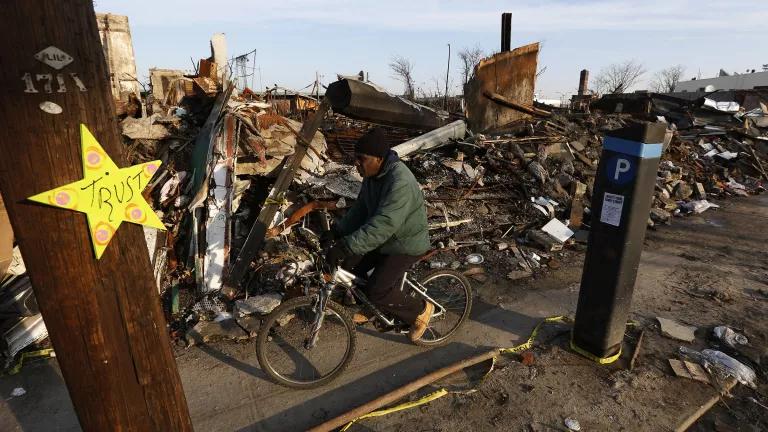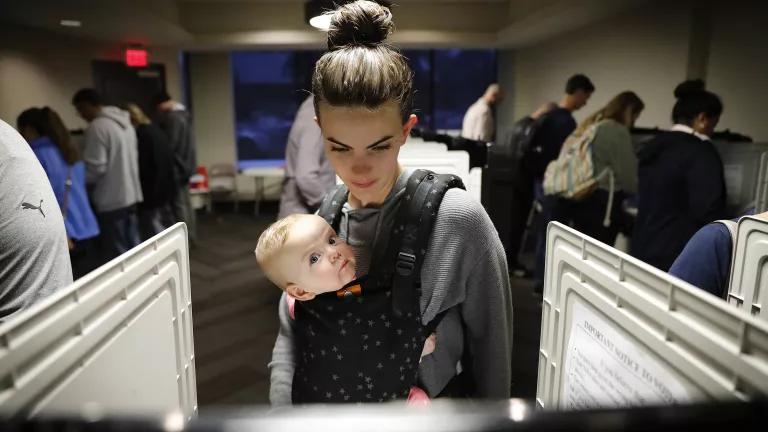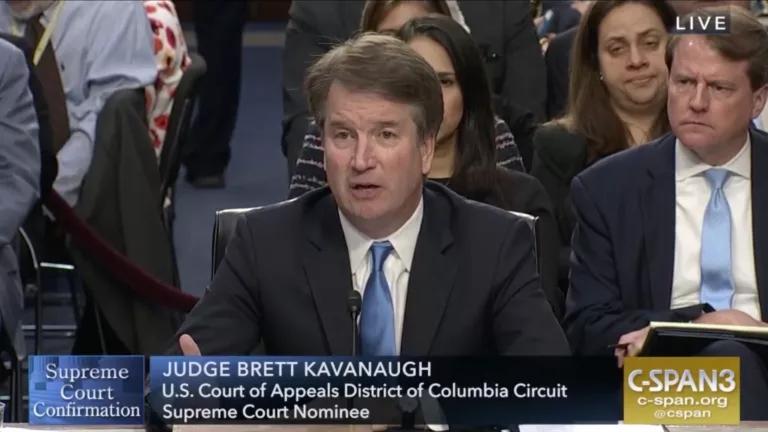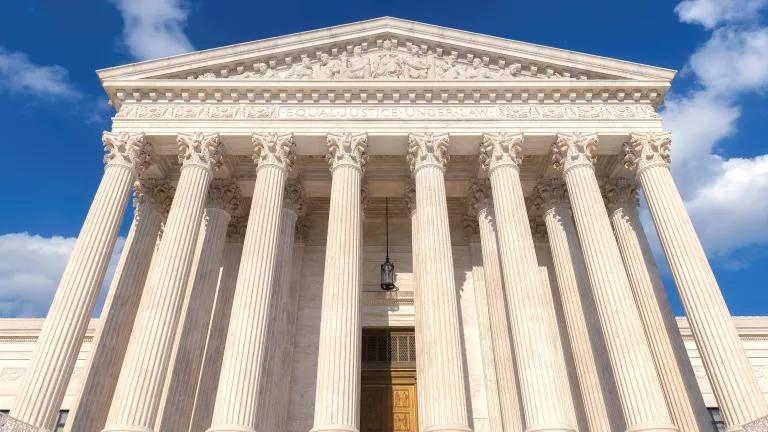To Make Progress on Our Mission, We Cannot Ignore Racism

Fighting racial injustice isn’t separate from championing the climate and environment. Rather, it’s a fundamental component of what we do, every single day.
This Black History Month, I’m taking this critical moment to acknowledge an undeniable fact: that in order to have much-needed progress on the environment and climate, it is absolutely necessary to fight for racial justice and equity.
At NRDC, we are guided by the pursuit of clean air, clean water, a healthy environment, and a livable future for all. By this definition, we must recognize that our goal is necessarily intertwined with the struggles of those who have been historically underrepresented, marginalized, and oppressed. In the lasting words of civil rights leader Martin Luther King Jr., “Injustice anywhere is a threat to justice everywhere.”
This injustice is ever present in communities of color. The very urgent problem of climate change—which is inherently an issue of inequality—is already and disproportionately experienced in this country by people of color, particularly African Americans. From superstorms that are growing longer and more intense, like Hurricanes Sandy and Harvey, to extreme heat that will worsen the urban heat island effect and cause deaths among people who have the fewest resources to cope, these effects of climate change have already begun to hit people of color the hardest.
However big the problem of climate change is, it’s not the only issue. Environmental problems have plagued communities of color throughout our history. We all know the story of Flint, Michigan, whose residents have had to endure the indignity and harm to their children and their health from lead-contaminated water, all because of a decision informed by bias and racism. Despite the settlement, the problem is far from over. There’s also Newark, New Jersey, another city facing a major drinking water crisis whose majority populations are low-income people of color, and Los Angeles, where the predominantly Black and Latino communities located near the busiest container ports in the United States have had to live with toxic smog that leads to higher asthma rates and higher risk of cancer. There are countless more injustices that get buried in the unrelenting churn of today’s news cycles.

None of this is acceptable. And this is why we at NRDC have been working directly with communities and local leaders and organizations to seek justice on behalf of people who have borne the brunt of these terrible inequities.
NRDC did not arrive at this juncture without some honest self-examination, and we’re better off for it. Some of the most meaningful work I’ve seen at this organization has been our ongoing efforts in Flint and Newark and with other communities directly affected by toxic chemicals, and I’m deeply thankful to the people who have allowed us to work alongside them and represent them in court or other public spaces. And I’ve seen signs of progress in our day-to-day efforts—more awareness, more tough questions and conversations about bias and race—that would not have been possible just a few years ago.
But this work is never finished, and we still have a lot to do. As someone who has spent her whole career thinking about environmental injustice, I know that the progress we’ve seen is not enough—not when people in positions of authority flat-out reject the opportunity to truly understand the hard lessons of race and power in this country, as we have seen all too recently. And more inclusiveness and more representation can only make the environmental movement stronger, better, and more equitable.
The environmental movement owes its beginnings to the Civil Rights movement, and it’s time we come together again. We need to move forward in a way that acknowledges that real change will not happen unless we can unite. And to truly unite, we need to support those who are unjustly sidelined and struggling, use our privilege to bring more and different voices to the table, and fight for what’s right for everyone. Nothing less than that will be true to our mission.



